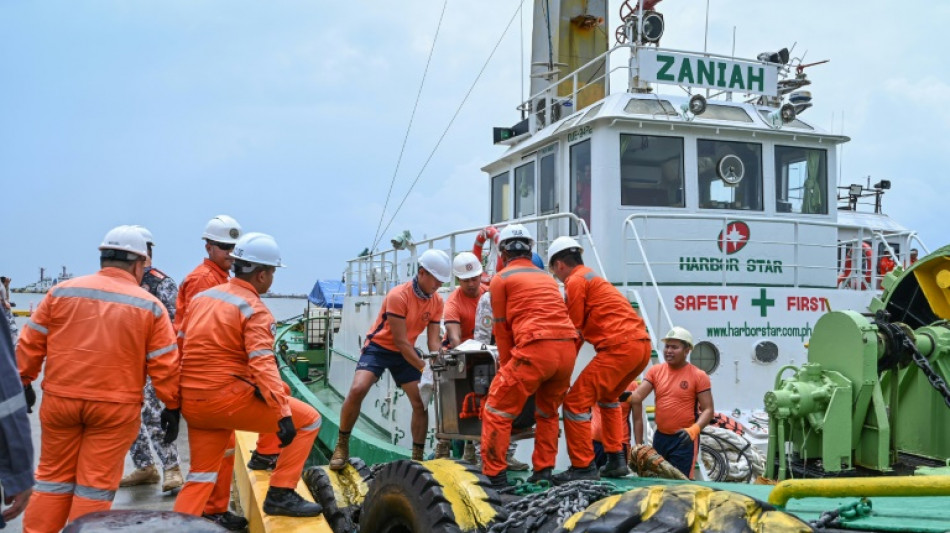
Divers attempt to reach sunken Philippine oil tanker

Divers will attempt Saturday to inspect the hull of a Philippine tanker carrying 1.4 million litres of industrial fuel oil that sank off Manila as authorities race to avert an ecological catastrophe, the coast guard said.
The MT Terra Nova sank in bad weather in the busy waterway early Thursday, killing one crew member and leaving the country potentially facing its worst oil spill disaster.
"The weather is still bad but that is their goal for today, to conduct diving operations to determine the position of the ship and to check if there is a leak," coast guard spokesman Rear Admiral Armando Balilo told AFP.
If the inspection by divers from the coast guard and a private contractor is successful, the salvor is under instructions "to start the syphoning tomorrow if possible", Balilo added.
The ship that will carry the recovered oil is on its way to the area, he said.
The coast guard has warned that if the entire cargo leaked it would be an "environmental catastrophe" and be the worst oil spill in the Philippine history.
So far the authorities said no leak has been detected from the industrial fuel oil cargo as the vessel rested on the sea floor under 34 metres (116 feet) of water.
However authorities have reported what appeared to be a "minimal" oil slick from diesel fuel used to power the tanker.
Oil containment booms have been deployed for what Balilo earlier described as "the worst case scenario" of the cargo leaking out.
The vessel sank nearly seven kilometres (four miles) from its origin in the port of Limay west of Manila. It was attempting to return to port after running into bad weather.
The incident occurred as heavy rains fuelled by Typhoon Gaemi and the seasonal monsoon lashed Manila and surrounding regions in recent days.
The state weather service said the monsoon had weakened by late Friday, giving the authorities a window of relative calm at sea to recover the cargo.
The coast guard estimates the extraction would take at least seven days.
The Philippines has struggled to contain serious oil spills in the past.
It took months to clean up after a tanker carrying 800,000 litres of industrial fuel oil sank off the central island of Mindoro last year, contaminating waters and beaches of the island and devastating the fishing and tourism industries.
Another tanker sank off the central island of Guimaras in 2006, spilling tens of thousands of gallons of oil that destroyed a marine reserve, ruined local fishing grounds and covered stretches of coastline in black sludge.
A.Rispoli--PV
